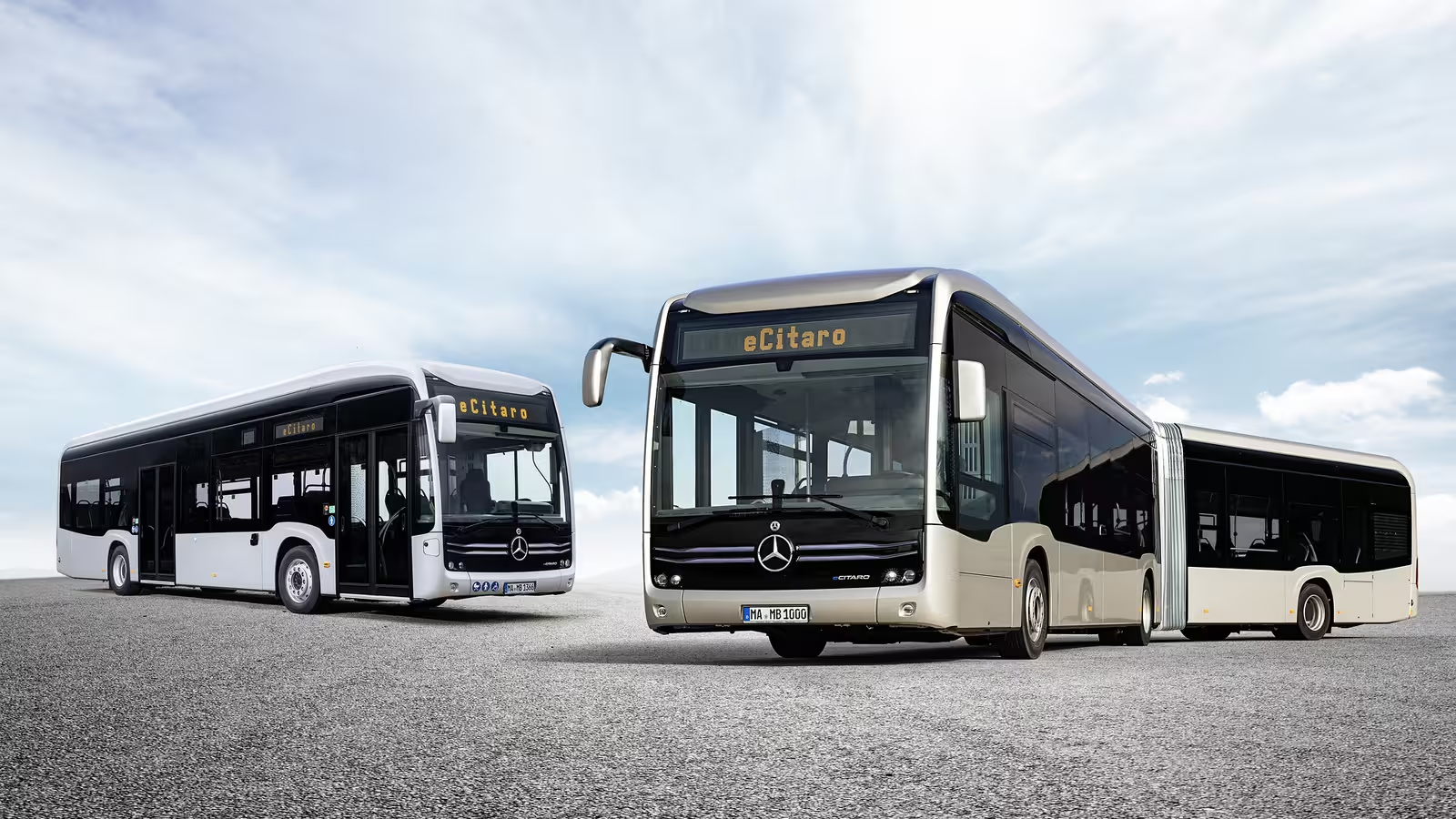5 Minutes
Introduction: The Rise of the eCitaro Electric Bus in Europe
Since its debut in late 2018, the Mercedes-Benz eCitaro has rapidly transformed urban transportation across Europe. More than 2,500 units of this innovative low-floor electric bus have been manufactured at Mercedes-Benz’s Mannheim facility and delivered to public transport operators throughout the continent. Cities in Germany—including Stuttgart, Hamburg, Dresden, and Nuremberg—as well as regions in France, Italy, Sweden, Austria, Switzerland, and Poland, are testament to the widespread adoption of the eCitaro, solidifying its status as a pioneering leader in electric public transit.
Design and Innovation: Combining Classic Roots With Advanced Technology
The basis of the eCitaro lies in the iconic Mercedes-Benz Citaro platform, recognized globally as one of the best-selling city buses in history. By blending classic design elements with cutting-edge electric technology, the eCitaro delivers not only a striking visual presence but functional advantages. Its robust, locally emissions-free propulsion ensures it can easily handle the most challenging city routes, meeting almost every transport company’s standards for range, efficiency, and reliability.
Flexible Configurations and Expanding Line-Up
When first launched, the eCitaro was offered as a 12.14-meter solo bus, with a battery capacity of up to 243 kWh. Today, the family has grown to include multiple body styles and lengths to serve diverse operational needs:
- Standard eCitaro: Available with four to six next-generation NMC3 (Lithium Nickel Manganese Cobalt Oxide) battery packs, supporting up to 588 kWh of total capacity.
- eCitaro K: A more compact 10.63-meter variant retaining the same powerful battery options.
- eCitaro G: An articulated model stretching 18.13 meters, offering up to seven battery packs and a maximum capacity of 686 kWh. This flexible option is available with three or four doors for efficient passenger flow.
Pioneering Hydrogen and Fuel Cell Technology
Mercedes-Benz set a new benchmark in 2023 by introducing the eCitaro fuel cell and eCitaro G fuel cell models. These innovative variants feature a 60 kW fuel cell as a range extender, complemented by hydrogen tanks on the roof. The result is a substantial increase in operational range between charges, further enhancing reliability and versatility on demanding urban lines.
The solo eCitaro fuel cell incorporates three NMC3 battery packs (294 kWh total), while its articulated counterpart can be equipped with up to four packs (392 kWh maximum). Hydrogen-powered models offer exceptional flexibility, with the fuel cell supplementing battery power and extending service intervals—ideal for cities seeking zero-emission solutions without sacrificing efficiency.
Looking Ahead: New Technologies and Future-Proof Performance
Mercedes-Benz continues to invest in innovation. By 2025, the eCitaro fuel cell series will introduce "H2 mode," allowing entirely hydrogen-powered operation in select scenarios. In this mode, the fuel cell charges the battery as the vehicle runs, removing the need for plug-in charging during rest periods.
Advancements continue in 2026 with the implementation of state-of-the-art NMC4 battery technology. These advanced batteries will deliver even greater energy capacity, longer ranges, and extended service life, all while supporting rapid charging rates of up to 300 kW—making the eCitaro among the most future-ready electric buses on the market.
Vehicle Specifications: Efficiency and Practicality
- Battery Technology: NMC3 and upcoming NMC4 lithium-ion batteries
- Battery Capacity: Up to 588 kWh (solo), up to 686 kWh (articulated)
- Fuel Cell Option: 60 kW fuel cell, hydrogen tanks on roof
- Charging Power: Up to 300 kW with fast-charging systems
- Length Options: 10.63 m (eCitaro K), 12.14 m (Solo), 18.13 m (G Articulated)
- Doors: Two or three (Solo/K), up to four (G Articulated)
Innovative Thermal Management: Maximizing Range and Comfort
The eCitaro is engineered with a sophisticated thermal management system designed to balance energy use and passenger comfort. By optimizing battery temperatures and utilizing a highly efficient heat pump for cabin heating, the bus reduces overall energy consumption for HVAC by about 40% compared to diesel-powered Citaro models. This decisive advantage translates into longer daily ranges and lower operational costs, without compromising comfort.
Performance and Safety: Unmatched Reliability
Ergonomics and usability are central to the eCitaro experience. The driver’s cockpit closely mirrors that of the traditional Citaro, ensuring seamless transitions and minimal retraining for operators. Controls have been intuitively adapted—such as swapping the traditional rev counter for a power meter, and adding displays for hydrogen tank levels in fuel cell versions.
Passenger comfort is prioritized through intelligent suspension systems. With electrohydraulic "intelligent eco steering" and finely-tuned roll and pitch control, the ride remains smooth and composed even on uneven city roads. High-voltage elements, including crash-resistant battery modules and secure cabling, are tested to meet strict hazardous goods regulations, earning the eCitaro high marks for safety and dependability.
Market Position: Leading the Shift to Sustainable Urban Transit
Mercedes-Benz eCitaro’s rapid market acceptance across Europe is no accident. Its blend of proven engineering, best-in-class battery and fuel cell technology, and ground-breaking secondary systems—like innovative thermal management and safety-first design—make it one of the most attractive options for transit agencies pursuing electrification strategies. Daimler Buses even provides comprehensive turnkey electromobility solutions, reinforcing the eCitaro’s appeal as both a product and partner in sustainable urban development.
Comparison: Setting New Standards
On the global stage, the Mercedes-Benz eCitaro stands shoulder to shoulder with leading electric buses from global competitors, such as Volvo and BYD. Its edge comes from seamless integration of Mercedes-Benz’s renowned quality, a diverse range of bus formats, and state-of-the-art battery and hydrogen propulsion technologies—enabling cities to confidently modernize their fleets without compromise.
Conclusion: The Future of Urban Mobility
With over 2,500 eCitaro buses in daily operation across Europe and a clear roadmap for further innovation, Mercedes-Benz underlines its commitment to revolutionizing public transport. The eCitaro’s blend of flexible configurations, advanced battery and fuel cell options, exceptional thermal management, and rigorous safety standards set it apart as a true benchmark in electric city buses. For any metropolitan area serious about sustainability, efficiency, and passenger comfort, the eCitaro represents the future of urban mobility—delivering tomorrow’s technology, today.
Source: electriccarsreport



Comments